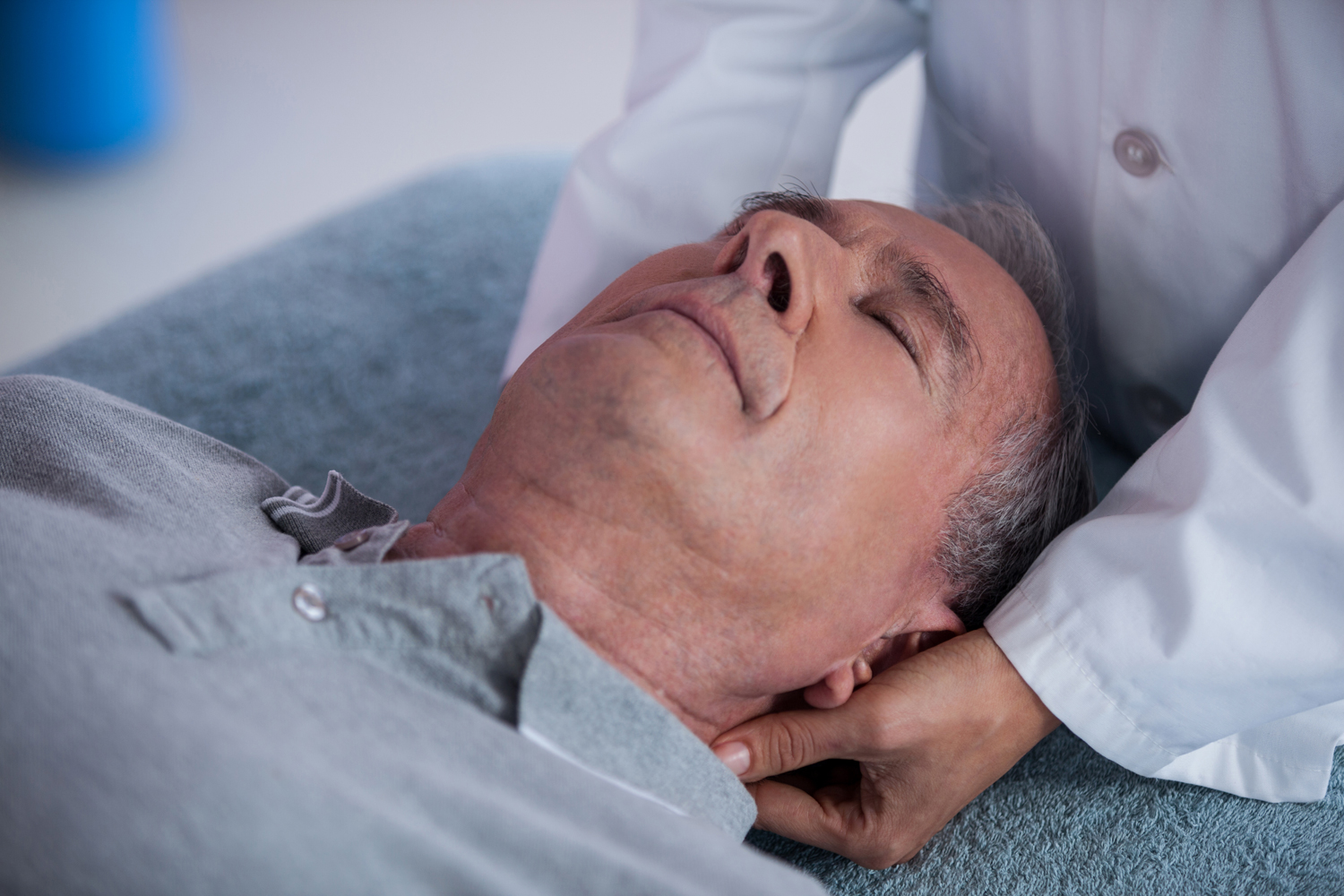A STUDY PUBLISHED in JAMA Network Open in November 2023 compared two therapies—acupuncture and massage—and found both could help patients with advanced cancer cope with pain. Researchers found that while both therapies lowered pain intensity, there was no significant difference between them in the level of pain relief.
After a 26-week period, 55% of the study participants treated with one of these methods reported less pain. Acupuncture and massage were also found to help with fatigue, insomnia and overall quality of life. All trial patients had advanced cancer and reported significant musculoskeletal pain that was localized to specific joints or parts of the body or felt throughout the body.
Acupuncture, a practice that involves sticking fine needles into specific points on the body, is most commonly used to manage pain. For the study, trained acupuncturists placed 10 to 20 needles in at least four points where patients reported pain, as well as other locations based on symptoms. Likewise, massage focused mostly on the specific areas of the body where patients reported pain and used a variety of massage therapy techniques, including compression, muscle stripping, trigger point release and others. Both acupuncture and massage were done in 30-minute sessions.
These findings add evidence to support guidelines from the American Society of Clinical Oncology (ASCO), indicating that integrative medicine—which uses complementary techniques such as acupuncture, massage and meditation alongside conventional medicine—can help with a wide range of symptoms and side effects associated with cancer and treatment.
“Our research is consistent with several large trials that found acupuncture is associated with clinically meaningful and persistent improvement in pain,” says Jun Mao, a study author and an integrative medicine specialist at Memorial Sloan Kettering Cancer Center (MSKCC) in New York City. “It is reassuring to see that massage in our trial also produced benefits very similar to acupuncture.”
The study notes that integrative therapies could play an increasingly important role in cancer care as more patients and doctors look for non-opioid alternatives to treat pain.
Mao explains that at MSKCC, acupuncture and massage are routinely provided for people who have advanced cancer, with positive results reported in management of pain and other symptoms like fatigue, insomnia, anxiety and nausea.
In addition to acupuncture and massage, other integrative techniques that Mao recommends for pain relief include practices that work on the mind-body connection, such as yoga or tai chi. In patients too frail for certain exercises, gentle physical activities, breath work and meditation can be helpful, he says.
Melinda Ring, an integrative medicine expert and executive director of Northwestern University’s Osher Center for Integrative Health in Chicago who was not associated with this study, says integrative treatment approaches such as acupuncture and massage “not only address physical symptoms but also contribute to psychological and emotional well-being.”
Though a growing body of research touts the benefits of acupuncture and massage as pain treatments, Lora Thompson, a psychologist specializing in psychosocial oncology at Moffitt Cancer Center in Tampa, Florida, who was not associated with this study, notes that these techniques are not for everyone.
“Patients should first check with their doctor to ensure that it is safe to receive these services and should find providers with experience working with cancer patients,” she says.
Many cancer centers now offer integrative services on-site to give more patients access to these pain relief options and experienced practitioners. Not all patients have access to these services, however, and health insurance companies may not reimburse patients for them.
Fortunately, Mao says more insurers are now covering acupuncture as a treatment for chronic pain—and massage may follow suit.
“Insurance coverage for massage for pain is extremely limited,” he says. “Hopefully, with more research, insurance can cover these evidence-based treatments and we can improve the quality of life for those living with advanced cancer.”
Cancer Today magazine is free to cancer patients, survivors and caregivers who live in the U.S. Subscribe here to receive four issues per year.





